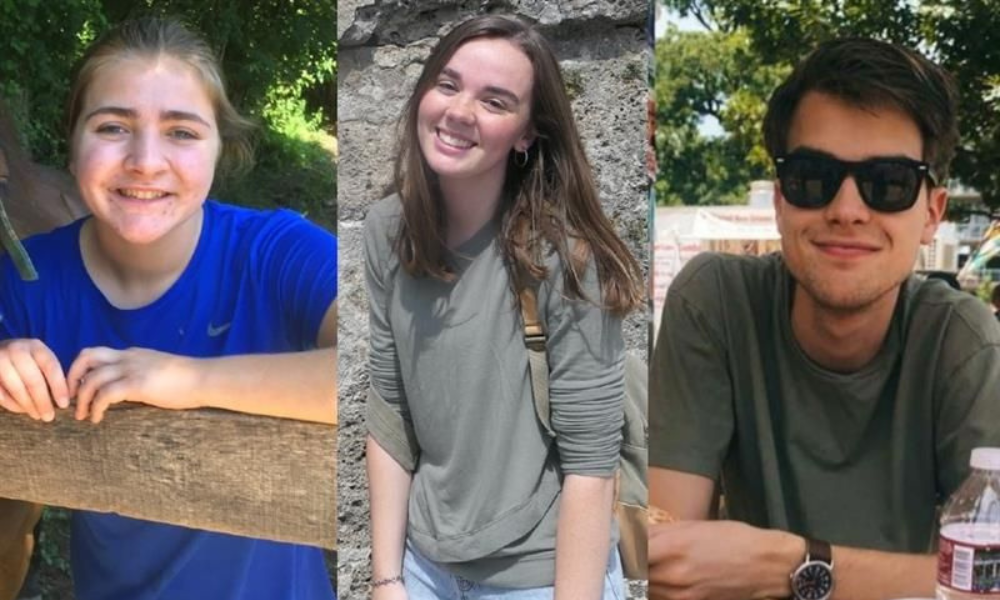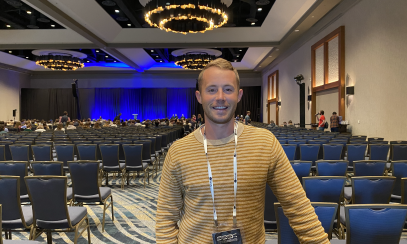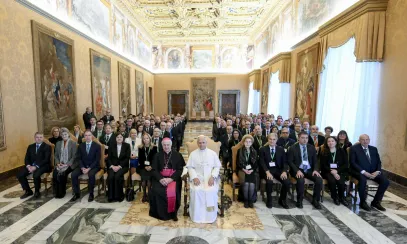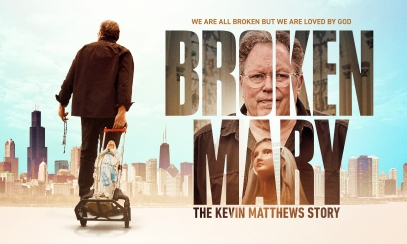
These Catholic College Students Dumped their Smartphones for the Year and Here’s what Happened
May 9, 2023 | As Franciscan University of Steubenville students wrap up their spring semester, a large group of its undergraduates will be heading into summer significantly changed after participating in the school’s invitation to drop their smartphones.
May 9, 2023 | As Franciscan University of Steubenville students wrap up their spring semester, a large group of its undergraduates will be heading into summer significantly changed after participating in the school’s invitation to drop their smartphones.
“It had way more of an effect on me than I thought it would,” Grace Pollock, a sophomore nursing major at the private university in Steubenville, Ohio, told CNA May 3.
Pollock has seen an improvement in her focus and productivity and spent more time doing outside activities and reading since joining the school’s “Unplugged Scholarship,” which began its pilot run in the fall semester of 2022.
The scholarship awarded $5,000 this academic year to undergraduate students who gave up their smartphones. Students can reapply for the scholarship even if they were selected the prior year.
Thirty students received the scholarship this year. Almost 170 students originally applied, and although not all of them were officially received into the program, a total of 80 undergrads gave up their smartphones and met monthly to support one another and share their experiences in the program.
The initiative was started by Franciscan University alumni Justin and Hope Schneir, both from the class of ‘99, in addition to a small group of other alumni.
The scholarship is intended to help the students gain independence from their smartphones and is part of a larger initiative launched by The Humanality Foundation, which “was created for the sole purpose of helping humans engage with reality by gaining control of their digital universe,” Justin Schneir told the National Catholic Register in November.
“We value a life lived fully, a life connected to meaningful engagement with self, other, and God,” he said.
Becoming more ‘present’
Pollock as well as 21-year-old junior Paul Merkel and 18-year-old freshman Theresa Ryan all said that giving up their smartphones helped them to become more “present.”
“I could just sit down to pray and it was so much easier to be present,” Ryan said.
She still finds it difficult to pray sometimes, but dropping the smartphone took away “a big obstacle” so she could “be present to the inspiration of the Holy Spirit.”
Pollock said that prior to giving up her smartphone, she would often look down at the device while waiting in line, but not anymore.
Instead, she’ll strike up a conversation with the person next to her.
“I think it’s a great way to actually see the people in front of you rather than looking at your screen when you’re uncomfortable in a situation,” she said.
Pollock said that she notices how the phone takes people’s attention while they are in conversation with others.
“There’s constantly notifications going off, so whenever I’m talking to someone, they’re constantly picking up their phone, looking at it and putting it down,” she said.
That can be “slightly frustrating,” said Pollock, but she has found ways to ignore it or address it.
Alternatives to smartphones
Ryan, who is set to receive the scholarship funds next year but is participating in the program along with 50 other students who did not receive the funds, uses a Light Phone, which is marketed as “technology intentionally designed to be used as little as possible,” according to its website.
There are several different options for people looking to drop their smartphones and switch to what is commonly called a “dumbphone.”
CNBC reported in March that the sale of flip phones was on the rise in the U.S. for one major flip phone distributor, HMD Global, which makes Nokia phones.
Merkel uses a flip phone.
“Almost immediately I noticed that my mind was a lot clearer after a week of not having a smartphone,” he said.
Merkel told CNA that his friends “started taking notice” because his phone “looks like it’s from 2003.” But it has been a great conversation starter, and in speaking with his peers about modern-day cell phones, “no one actually likes their smartphones.”
He said many people tell him: “I wish I could give up my smartphone, but I just can’t.”
Merkel told CNA that prior to joining the scholarship, he believed he couldn’t give up his smartphone either. “I originally thought, ‘That would be so cool, but I just am not capable of it.’”
Additionally, Merkel said that switching to his flip phone has been a lot cheaper than his smartphone because he doesn’t pay for data and is only paying about $20 per month for unlimited talk and text.
“But I could probably even find a plan that’s cheaper than that,” he said. Connecting to social media
Without a smartphone, how do the students connect to social media?
Ryan isn’t a big social media user, but Pollock and Merkel have Instagram accounts that are still active. Since they can’t access their accounts on their phones, the two will use their laptops to check their accounts once in a while.
“It’s so inconvenient to look at social media on your laptop, so I really don’t find it worthwhile unless I know someone had a life update and I want to look at their post,” Pollock said.
Merkel said he checks his account to see if he was messaged by someone, but not very often. The break from constantly checking social media has brought more peace into his life because “you don’t have that kind of constant comparison of what other people are up to.”
Will they go back to their smartphones?
Merkel, Ryan, and Pollock all said the community of the Unplugged Scholarship was helpful in supporting them through the journey.
Additionally, all three said they would recommend it to other students and hope other schools adopt the program.
Pollock is not going back to her smartphone for the rest of her schooling but will reevaluate once she enters her career. Merkel doesn’t see himself going back to a smartphone at all.
Ryan, who hopes to join religious life after graduation, won’t be going back to a smartphone either.
“We want people to recognize the inherent goodness in this sort of lifestyle and hopefully join us,” Ryan said of the Unplugged Scholarship. “That would be amazing.”



